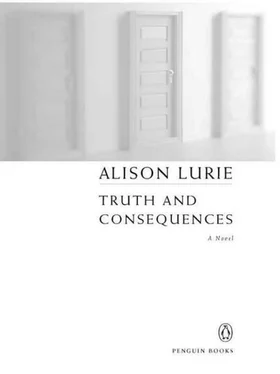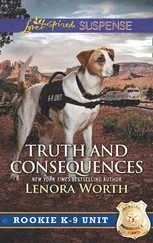“Yes, you did. To an American, a Canadian is something like—like this cabbage.” He lifted it from his basket. “Organic, healthy, solid, reliable, boring.”
In spite of herself, Jane laughed.
“Why are you laughing? It’s no joke to be Canadian.”
“I didn’t say all that, you did. Anyhow I don’t think of Canadians as cabbages.”
“Ah. So what do you think of them as?”
“I don’t think of them as anything,” Jane said, half amused and half uncomfortable.
“Exactly. You don’t think of us at all. That’s our tragedy.” Henry grinned and took a final gulp of cider. “You don’t know how it is for us up there. We’re always looking south. Aware that beyond the boundary there’s another world: brighter, richer, full of abundance and adventure. It’s like being poor relations or hired help. We’re stuck up in the cold attic, and you’re all down below where it’s warm and there’s always a party going on.”
“Is that why you came to America?” Jane asked. The idea of a whole nation—or at least of Henry Hull—longing for her life, and envying it, seemed both childish and cheering.
“Well.” Henry paused and looked up the lake, where a little breeze was now stirring the water. “I suppose so. At least partly.”
“And you found what you wanted?”
“Hell, no.” He laughed. “I should have known. See, back home I was just a guy like other guys, but the minute I got here I was a Canadian. As soon as anyone heard where I came from, the organic cabbage was all they saw.”
“But you didn’t go back,” Jane said.
“No. I just stopped telling people where I was from.”
Jane looked at him, meeting his smile. “You told me,” she said.
“Yeah, I did. I don’t know,” Henry said. “I guess I feel safe with you.” He put his large square hand on hers in a friendly manner.
But I don’t feel safe with you, Jane thought. She tried to move her hand, but found it impossible.
“You’re not like most Americans,” Henry said meditatively. “With most Americans I never feel safe. You’re kind of like a Canadian,” he added, smiling now.
“Really.” She found the strength to pull her hand away. “Is that a compliment or an insult?”
“What do you think?” Henry continued to smile.
“I think it’s a bit of both,” Jane said as evenly as she could manage. “I must get back now,” she added, standing up. “Alan—”
“Yeah. How is Alan?”
“Not too well today, actually.”
“It’s rough, back trouble,” Henry said. “Or so I hear.”
“Yes.” Jane picked up her own basket. “It’s not easy for him.”
“Or for you either,” Henry suggested. He looked up at her, not smiling now. “It’s no joke, being a caregiver, right?”
“Well, no, not always,” Jane admitted, a little surprised. “But of course it’s much worse for him. I mean, he’s in terrible pain a lot of the time. I don’t have any right to complain.”
“Sure you do. And so do I.” Henry stood up. He was not as tall as Alan, but darker and broader, and unmistakably strong and in good health. “It’s what you do that counts, not what you say. Or what you feel.”
“Well. Maybe.” In spite of herself, Jane smiled; but she also took a step away.
“I think we should meet often and complain to each other.” Henry put his warm broad hand on her bare arm, pulling her back toward him for a disturbing moment. “What about lunch someday next week?”
“Oh, I don’t know,” Jane said, shifting from one foot to another.
“I’ll call you. We caregivers have got to stick together.”
EIGHT
At the Unger Center for the Humanities, Alan lay on a dusty green plush sofa in a position that decreased but did not eliminate the gnawing pain in his back. For a few hours this morning he had been able to work through the pain, but then it had become too exhausting.
Still, he had accomplished something. He had written three pages on the semiotics of American religious architecture, with representative examples. Catholic churches in this country, he had proposed, tended to have sturdy, even stocky brick or stone bell towers, or at least towers capable of containing bells. It was usually possible, though not always easy, to climb them. The standard Episcopal or Presbyterian church tower was narrower and often taller, and more difficult of ascent. And in the newer and more radical denominations, the steeple tended to become thinner and thinner, so that eventually it was sometimes reduced to a mere symbolic white wood or shiny aluminum spike, a kind of exaggerated lightning rod. Was this development, perhaps, related to a conception of the Holy Spirit as no longer a benevolent dove that might roost on or nest in a tower, but instead more like a bolt of electricity that could and sometimes did strike worshippers down, so that they fell to the ground and babbled in tongues?
For the last week or so things had been looking up a little. Alan’s back was not well, nothing even approaching well; but at last it was no worse than before his operation. Possibly this had something to do with his new office, with its sofa and the drafting table; possibly he was just managing the drugs better, so that he got some relief without headache, constipation, confusion, and all the other nasty side effects. Or, possibly, his recent attempts to resume an exercise regime were paying off. Encouraged by his friend Bernie, Alan had begun going for walks, and even (with the help of a charity transportation service called Gadabout) visited the YMCA pool, where he swam for twenty minutes and did uncomfortable water exercises.
The lizard, though slightly less active, was still there in his back; but the lecture on church architecture had gone well, and the questions and comments from the audience had suggested several new lines of inquiry. Delia had been there as she had promised, though her congratulations afterward were irritatingly cut short by the arrival of Selma Schmidt. Selma, who like all the other Fellows seemed to have a kind of adolescent crush on Delia, had come up to pant and gush not over his talk, but over Delia’s latest story, actually pushing him aside in her haste.
Ultimately, though, the interruption hadn’t mattered, because the following day Delia had come to Alan’s office to repeat her praise both for his lecture and for the artificial follies on his property. Moved by her enthusiasm, Alan had shown her, first, his watercolor rendering of the ruined chapel as it would look when completed, and then his drawings for several other possible projects. Delia’s reaction—impressed, amused—had been gratifying.
“Yes—this is the real thing,” she had declared finally. “Have you shown it anywhere yet?” Alan had shaken his head. “You must have sent slides to your gallery, at least.”
“No,” he had admitted. “I don’t have slides, and I don’t have a gallery. I did these drawings for myself. For the fun of it.”
“But you should have a show.” Delia opened her great gray eyes even wider. “Everyone should see this work. You mustn’t be selfish.”
“I don’t know.” He smiled. “It might be dangerous, you know. All these destroyed buildings, especially now. If they went on view somebody might report me to Homeland Security.”
Delia laughed. “I suppose anything is possible,” she said.
“But seriously, you know, some people might be angry.” He was quoting Jane now. When she had helped him move his drawings to the Center she had suggested that this wasn’t a good time to leave them lying about. “There’s some things you can’t make fun of,” she had warned.
“No, no, no,” Delia interrupted, tossing back her heavy shock of golden hair. “You’ve got it all backwards. What’s happened makes your drawings more serious; it gives them a kind of visionary, prophetic quality. You see these monuments as simultaneously beautiful and endangered. I wonder—I have a friend in New York who runs a gallery. I think he might be interested. Would you let me contact him?”
Читать дальше







![Кэмерон Доки - Правда и ее последствия[Truth and Consequences]](/books/79610/kemeron-doki-pravda-i-ee-posledstviya-truth-and-con-thumb.webp)




